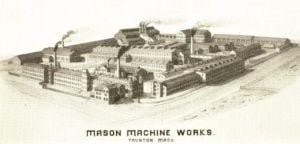Biographical Sketch of Capt. Henry E. Morgan
CAPT. HENRY E. MORGAN. – This well-known pioneer of 1849 is a native of Groton, Connecticut, and was born October 30, 1825. He moved with his parents to Meriden, in the same state, residing there until April, 1849, when he set forth for California in a bark via Cape Horn, arriving in San Francisco the following September. A short time afterwards he began a sea-faring life, and for fifteen years sailed the ocean. During that time he entered nearly all the noted foreign ports, and later purchased a vessel of his own and followed a coasting trade. In 1858 he … Read more

